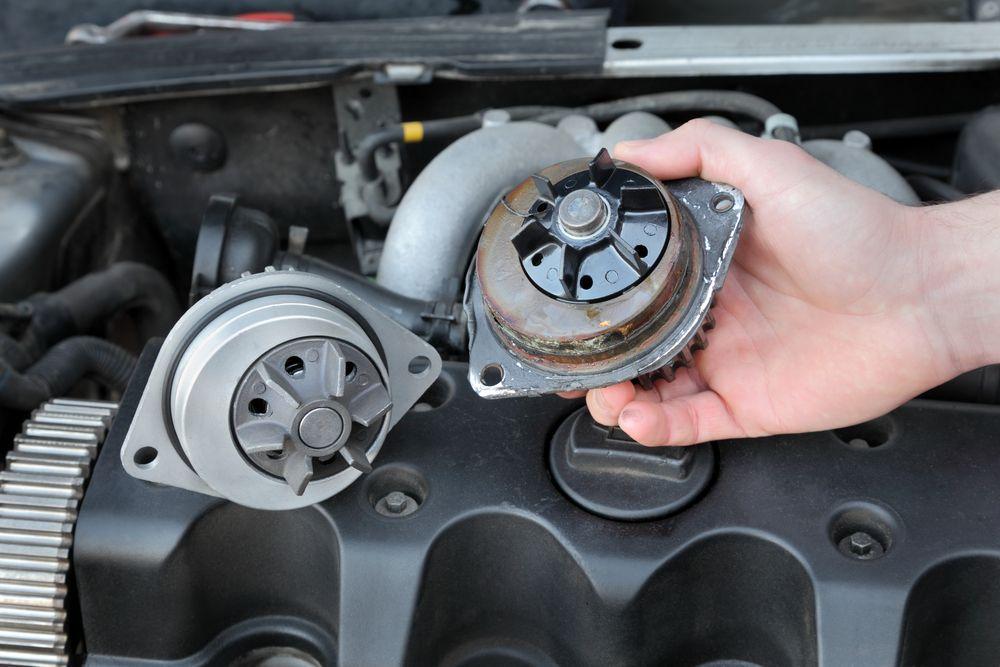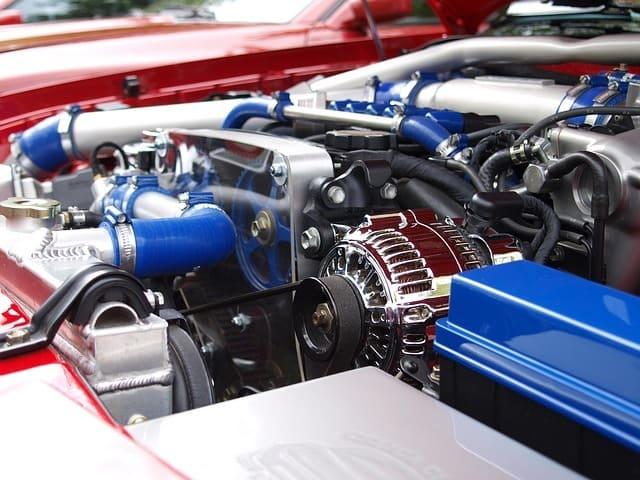How dangerous a failed water pump can be? An overheated pump can be menacing enough to destroy your car’s engine. Scary, right? But you can avoid this catastrophe by paying attention to the water pump noise. A failing pump makes different types of sounds and you can prevent a bigger failure by picking up the warning signs early.
Most modern vehicles have a long-lasting water pump but it will wear out at some point. Like any other part, it will show wear signs. You have to notice them and take repair action.
Contents
How Does a Water Pump Work?
To fix the issues of a noisy water pump, you should know its working mechanism so it becomes easier to identify the source of troubles.
The main function of the pump is to circulate coolant across several components including the engine block, radiator, intake manifold, heater core, cylinder heads, and all linked lines and hoses. It uses an impeller to push the liquid through these parts. A serpentine or timing belt drives this impeller, helping with pushing the liquid.
This liquid circulation is crucial to warm up the engine after starting the car. The coolant flow not only brings the engine to operating temperature but also controls the thermostat.
Water Pump Noise: How to Detect the Defective Part
A water pump has several parts and each one of them will make different noises when they are malfunctioning. Look out for these sounds:
Squeaking, Ticking, or Grinding Noises
Any of these sounds mean the bearings of the pump are about to die out and you will hear this when the engine is running. The noise comes from the shaft bearings’ unsuccessful attempt to lock up with the pump housing.
The pressure from the serpentine belt is the reason for the failure of the bearings. This belt forces the shaft to rotate upon the bearing rollers but these rollers don’t turn due to bad bearings. As a result, you hear those displeasing noises.
Neglecting this water pump making noise problem for too long will make the pump getting stuck, forcing the serpentine belt to derail from its track.
How to locate the problem
You need to check the bearings when you hear this kind of water pump noise coming from the front of the engine. What you need to do is to examine the shaft movement to find out whether any of the bearings are worn out or not.
Use a rubber hose or a big screwdriver to be sure that a bad bearing or shaft is the source of the trouble. Kick off the engine and be careful to keep the hose/screwdriver and your hands away from any moving part. Otherwise, there could be an injury.
Use the screwdriver’s tip or one end of the hose to touch the front side of the pump’s housing and place the other end against your ear. You will clearly hear the water pump making noise if the bearings are damaged or malfunctioning.
Remember that a faulty alternator, belt tensioner, AC compressor, steering pump, drive belt, and any component connected to the belt may create a similar sound.
SEE MORE
- Your BMW Water Pump Failure Is About To Fail? Look For These SIGNS
- Pumping Gas Has Never Been Easier. Follow These Tips.
Squeaking or Grinding Noises
Failing bearings are behind these sounds, but they are not the ones to make them. The pump’s pulley wavers because of bad bearings and creates those grinding or squeaking noises.
How to locate the problem
Check the water pump shaft and pulley for signs of visible damage or movement. If there is a timing belt, you will need to remove it first for better checking. In case of no visible damage, use a flatbed screwdriver to move the pulley back and forth on its axis. There should be little or no play.

Visible damage or too much movement confirms the wearing of these components. You can also check with your hand by trying to rotate the pulley. If it is defective, it will rotate freely without being felt tight or loose. In that case, you may have to replace the water pump to fix the noise problem.
In some vehicles, the radiator fan might be connected to the water pump assembly. If your car has the same design, you will need to wiggle the fan to ensure the good health of the pump. Excessive play indicates a water pump failure, but never forget to examine the mounting bolts and make sure they are tight.
Tips to Remember
You may have to replace the water pump when the bearings are bad or the pulley is not working. If there is a serpentine belt driving the pump, change both of them at the same time. These components have the same lifespan, so changing them at the same time will prevent one from damaging the other.
Any water pump noise should be attended with a proper diagnosis. Negligence will lead to failure of other components and expensive repairs down the road.



